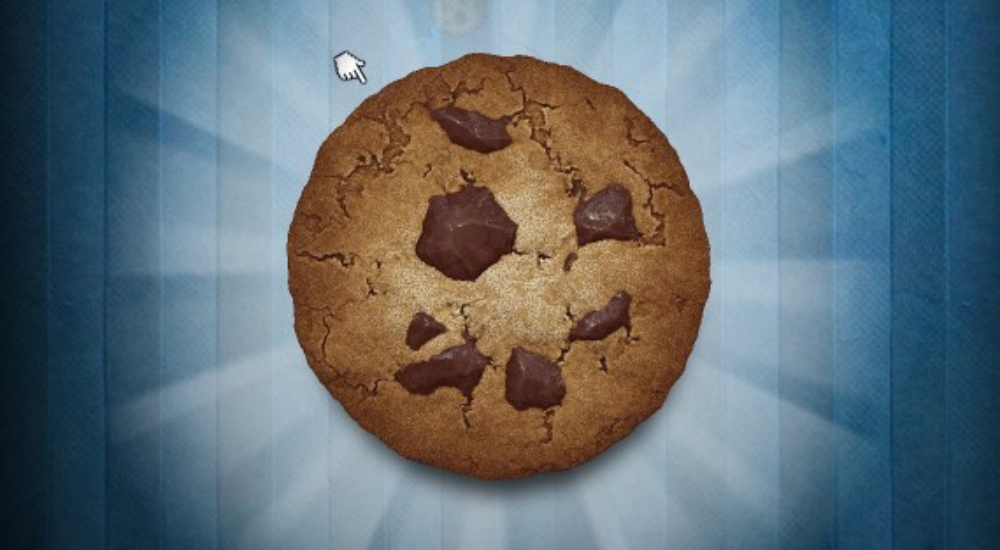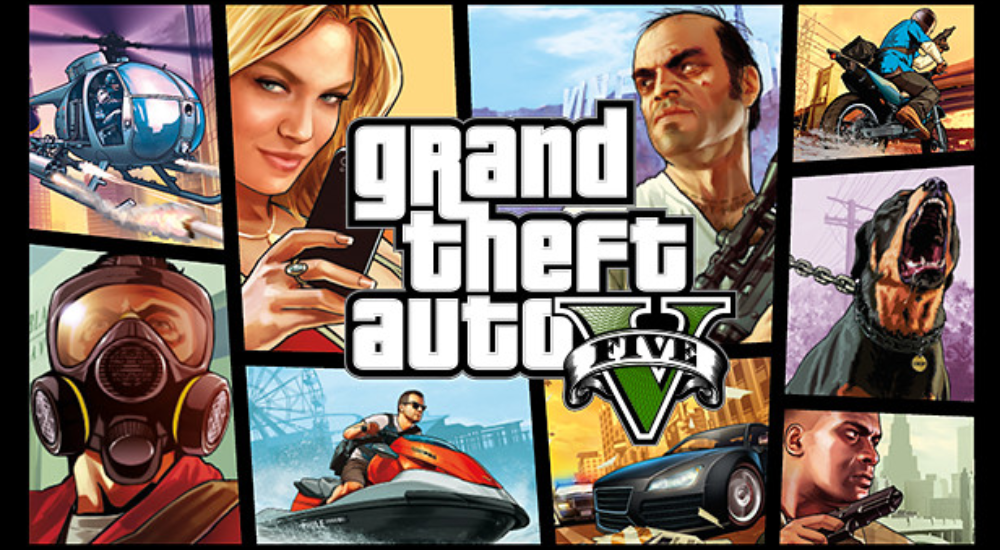Have you ever played an amazing game on your gaming console and then wished you could play it on your computer or even your phone? Well, that’s precisely where game porting enters the fray, and many companies have gone through the process.
In this article, we will delve into what porting games is about, the benefits of doing so, the game porting process, its challenges, and some examples of ported games – from the simple, yet viral Cookie Clicker to the crown jewel of Rockstar Games, Grand Theft Auto V.
What does it mean to port a game?
Porting a game essentially means that developers will take a game designed to work with a specific platform and make it work on another. In other words, you can think of the process as translating something into another language so that others can enjoy the same content, except that we’re talking about different game platforms.
However, the process is not as easy as asking Google to translate something for you. In fact, it can consume a lot of time and resources, as developers have to make sure that the game’s graphics, controls, and performance are optimized for the new platform(s). Don’t worry, we’ll go into more detail about the challenges developers face when porting games later in the article.

Are there any benefits to porting games?
As far as benefits go, they are numerous, with the main one being to reach a wider audience. Don’t believe us? We’ll let the numbers speak for themselves.
According to a 2021 survey by Statista, almost 50% of gamers use mobile devices to engage with the gaming world. The same research shows that around 28% of the general population play on Sony’s PlayStation 4, 19% on Microsoft’s Xbox One, and 18% on the Nintendo Switch – not taking PC gaming into account.
As you can see, porting games to other platforms can greatly increase your reach even though the game is the same. This can lead to an increase in sales and a larger community for the game, which will organically generate some media buzz for you.
Going through this ordeal can greatly extend the life of a game, as they promote new ways for players to experience it – playing an adventure game on a computer will be a completely different experience than playing it in virtual reality for example.
Speaking of new ways to experience things, porting games to other platforms can grant increased accessibility for players who are physically impaired – think, for example, of someone who can’t use a controller playing a game using touch controls instead and having a blast while at it.
Furthermore, ported multiplayer games often have cross-platform compatibility, enabling players on different platforms to play together, and have great cost-effectiveness, as developers can just reuse the same codebase, assets, and mechanics of a game without designing once from scratch.

Process of game porting
The process used to port games to other platforms can vary greatly depending on the game and the platforms for which it will be ported. However, it typically involves the following steps:
- Analysis: as game ports are often outsourced to other game studios, specialists must analyze the game and determine which changes need to be done for it to work on the new platform;
- Development: once the team identifies which changes will be made, it’s time to get those hands dirty. This time-consuming step is all about taking the original source code and making the necessary changes to accommodate the new platform’s requirements. It may include rewriting large chunks of code as well as adjusting the game’s graphics and controls;
- Quality Assurance (QA) testing: as the changes are implemented, they must be tested for bugs, usability, compatibility, and performance. This ensures that the ported version works as expected and helps developers identify bugs and issues that need to be addressed. To help developers in their quest for the perfect game, they often outsource QA testing to specialized services, who often do an astounding job.

Potential challenges in the process
Even though developers and designers don’t have to draw and build the entire world from scratch, porting games from one platform to another can present a variety of challenges for them. Some of the main ones include:
- Control differences: how players input their commands changes based on their platform of choice. For example, in PC games, players control the camera by moving the mouse around whereas in mobile games they might swipe with two fingers or tilt the phone. Properly translating a game’s controls to the target platform while keeping them intuitive and bug-free is much easier said than done;
- Balancing visual quality and performance: as different platforms have different hardware, they will have different processing powers, too. It’s easy to make visually stunning games for high-end PCs, but can the average phone keep up with similar graphics without sacrificing too much quality? Of course not. For most games, it’s a balancing act, and getting it just right is a tough challenge no matter your skill level;
- Storefront compliance: unless you’re going to self-publish your game, the most used gaming storefronts will require you to comply with some practices. Games put up for sale in the Microsoft Store, for example, must support a wide variety of screen ratios and Xbox controllers, be easy to install, run on many iterations of the Windows OS, and much more – all of which you can check here;
- Different programming languages: sometimes, games are developed in languages that are not supported by the target platforms. Take, for example, a game developed using C++ for PC: for it to be playable on phones, developers will likely have to rewrite it from the ground up in C# or Java. To add insult to injury, some features and/or libraries that were used in the original platform might not be available on the new one, requiring developers to rewrite potentially huge sections of the code.
3 successful examples of ported games
Minecraft (2011)

Minecraft is a universally-acclaimed sandbox game that has conquered the hearts of many, selling over 238 million copies since its release as of April 2021. Originally released on PC, it has since been ported to multiple platforms, including Xbox, PlayStation, Nintendo Switch, iOS, and Android, becoming one of the most popular games of all time.
This voxel-based game allows players to freely explore, build, and create their own worlds using blocks, with their imagination being the limit… if it wasn’t for the sky. The game allows plugins and mods to be installed, which can further enhance the game’s experience. And, if that wasn’t enough, Minecraft’s cross-platform capabilities allow players to play with friends on different devices, which hugely contributed to its success.
Cookie Clicker (2013)

The game starts simple: all you have to do is click a massive cookie to generate even more cookies, with which you can purchase buildings that generate cookies automatically, and upgrades to make everything more efficient. As you progress through the game, you will find that those innocent-looking grandmas turn into eldritch horrors, unveil mini-games within the game, and a reset mechanic with a web of hundreds of upgrades.
Cookie Clicker was originally released as a browser game and has since been ported to Android and iOS platforms. Recently, the developer has teamed with C418, Minecraft’s soundtrack composer, to create a Steam version of Cookie Clicker. By the way, it’s possible to install mods to further expand the base game, with new mini-games, buildings, and prestige upgrades to explore.
Grand Theft Auto V (2013)

The game is set in an open-world environment, allowing players to take on the role of a criminal and complete various missions and activities. There are so many of them that completing a 100% save is one of the most time-consuming gaming achievements, with players taking as long as 100 hours to fully complete this epic game.
One of the most expensive games to ever release, Grand Theft Auto V is an action-adventure game that was originally released on Xbox 360 and PlayStation 3. The game ended up being so successful that it was later ported to Xbox One, PlayStation 4, and PC, becoming one of the top-grossing games of all time – as of September 2022, the game had sold over 170 million copies.
It has recently got a re-release for the newest platforms (PlayStation 5 and Xbox Series X/S) with better graphics and even more content to unravel, allowing a new generation of players to experience the game for the first time.
Navigating the Complexities: Porting Games to New Platforms
Porting games to different platforms, whether from PC to console or from console to mobile, offers several benefits and challenges for game developers. The process of porting a game involves adapting the original game to function seamlessly on a new platform, which extends the game’s reach and potential player base.
By choosing a game porting service with expertise in the field, developers can ensure that their games run smoothly on the target platform. However, the process of porting a game isn’t without its challenges. Differences in hardware capabilities, control schemes, and screen sizes must be considered during the porting work. The associated costs of porting, including development and testing expenses, are also factors to weigh.
Additionally, maintaining a bug-free experience across different platforms can be a significant challenge. Despite the challenges, the benefits of porting are numerous. It allows developers to bring their games to new platforms and expand their audience. With the right game engine and porting team, a successful game can be successfully ported and enjoyed by players on a variety of devices, from consoles to mobile platforms.
Closing thoughts
All in all, porting games to other platforms can be a complex and time-consuming endeavor, but it can also bring numerous benefits for developers and players alike. As you have seen in this article, a successfully ported game can reach new audiences, extend its life by many years, and increase the company’s revenue while also providing more ways to enjoy the game as shown by Minecraft, Cookie Clicker, and Grand Theft Auto V.
However, porting a game is easier said than done, as there are many hardships to the process: developers must account for the different controls, hardware capabilities (which in turn affects the performance and visual quality of the game), storefront compliance rules, and the different programming languages/tools used to develop both versions of the game.
In any case, before porting a game to another platform, you first must create it. As you can imagine, developing games from scratch is often troublesome and can take much more time and resources than you might expect, which might lead to frustration. The best way to approach game development is to work alongside qualified professionals – and we’re here to help you out!
At Main Leaf, we develop incredible games on demand, working on them from early concepts to their release in the leading digital storefronts. We’re well-versed in all things concerning game development, such as game design, production, art, animation, audio engineering, blockchains, and much more.
Our roster of 70+ passionate experts follows the best development practices, such as Scrum, guaranteeing blazing-fast delivery speeds without loss of quality. So, are you ready to create a compelling game with us? Make sure to request a game quote right now – we’ll get back to you within 24 hours.

